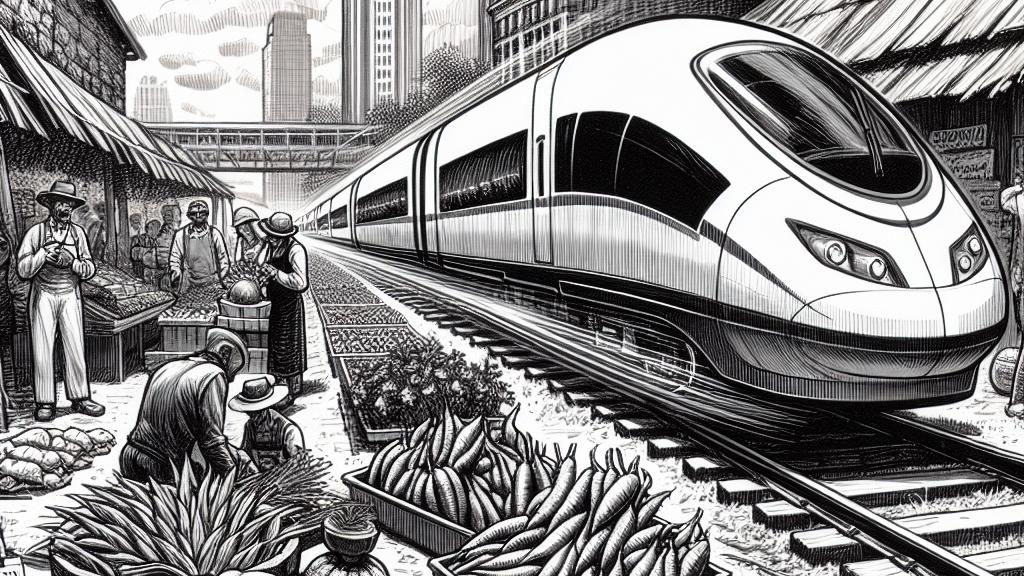Expressing Freshness: Fukuoka's Fast Track for Farm-Fresh Veggies!
Overview
- Innovative fast-tracking of fresh vegetables from Munakata to Fukuoka City.
- Utilization of express trains to ensure same-day delivery for peak freshness.
- Sustainable logistics with reduced carbon emissions compared to traditional truck transport.

Revolutionizing Vegetable Transportation in Fukuoka
In a groundbreaking initiative taking place in Munakata City, Fukuoka Prefecture, a new method of transporting freshly harvested vegetables is setting new standards for local agriculture. On August 2, 2024, JR Kyushu teamed up with local farmers to experiment with sending freshly picked vegetables—such as sweet potatoes, pumpkins, and peppers—via the Sonic express train. This innovative transport system dramatically reduces the time it takes for farm-fresh produce to reach consumers in Fukuoka City, allowing for same-day sales that ensure maximum freshness and promote better tastes for health-conscious shoppers. By improving logistics, this initiative not only meets consumer demand but also enhances the relationship between local farmers and the urban market.
Why Train Transport is the Future of Fresh Produce
The decision to utilize trains for vegetable transport presents numerous advantages that significantly benefit both farmers and consumers. The short journey from Akama Station to Hakata Station—taking only 27 minutes—allows for the rapid delivery of products that would otherwise take a full day using traditional transport methods. This efficiency protects the quality of the vegetables, something that is increasingly important to modern consumers who value freshness. Moreover, rail transport contributes to a reduction in carbon emissions, which is a crucial factor as awareness of climate change grows. As consumers prefer greener options, the eco-friendly appeal of train transport enhances the attractiveness of this system, positioning it as a sustainable alternative for produce logistics.
Benefits for Local Farmers and Community Engagement
This new transport initiative has generated excitement among local farmers and the communities they serve. Farmers like Rena Izu are eagerly anticipating the opportunities that arise from being able to sell their produce while it's still fresh—offering consumers the best quality food possible. By collaborating with local events, such as cycling races, farmers can directly engage with shoppers, highlighting the freshness of their offerings right after they arrive from the farm. This personal connection not only cultivates a sense of community but also empowers local agriculture, promoting the idea of farm-to-table dining. Ultimately, this initiative showcases how effective logistics can strengthen local economies, encourage sustainable agriculture, and foster relationships between consumers and their local food sources.

Loading...